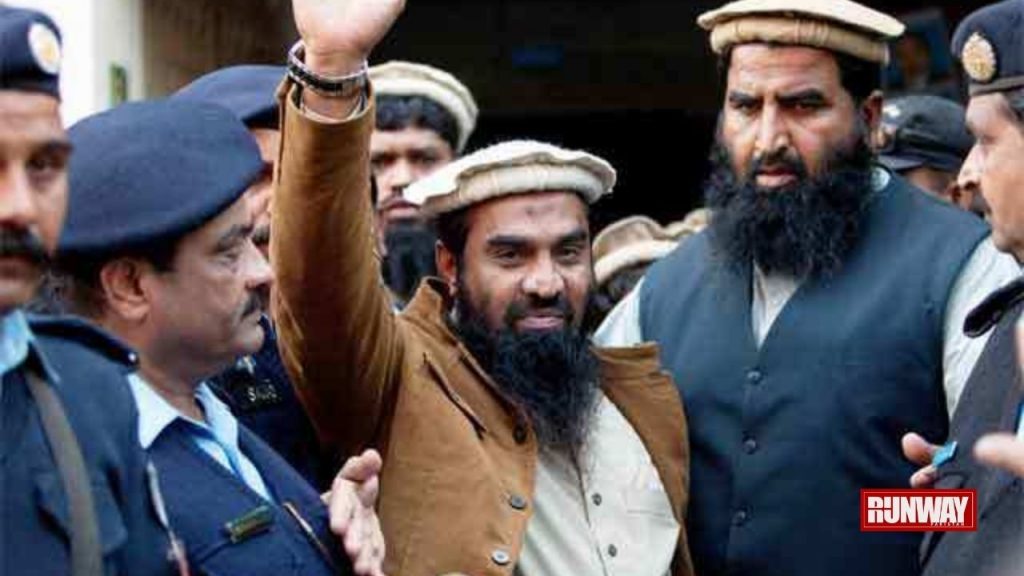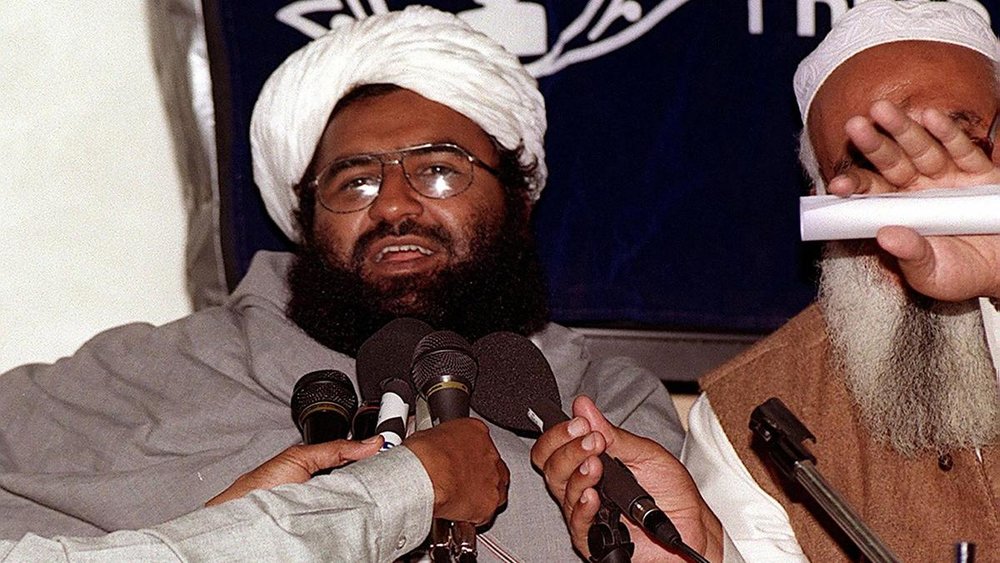
- Observers believe that these moves by Pakistan to arrest the leaders of Islamic terror organisations operating from its soil are aimed at the Financial Action Task Force (FATF) review later this month and in February.
- In October 2020, the FATF had found Pakistan deficient in implementing several action items regarding terror financing from its soil.
- The sudden move by Pakistan to arrest the leaders of terror organisations is seen as a measure to placate the FATF.
A Lahore Anti-Terrorism Court (ATC) on Friday sentenced Zakiur Rehman Lakhvi, leader of the terrorist organisation Lashkar-e-Taiba (LeT), to five years imprisonment. The court also directed police to arrest the co-accused in the case, Abu Anas Mohsin. Lakhvi has also been imposed a fine of Pakistani Rupees 300,000 in a terrorism financing case, as per a report in the Dawn.
On Thursday Jan 07, Pakistan acknowledged the presence of Jaish-e-Mohammad (JeM) chief Maulana Masood Azhar on its territory and sought an arrest warrant against him. An anti-terrorism court (ATC) judge at Pakistan’s Gujranwala – Natasha Naseem Supra issued an arrest warrant for Masood Azhar on charges of terror financing and directed that he be produced in court on Friday.
Observers believe that these moves by Pakistan are aimed at the Financial Action Task Force (FATF) review later this month and in February. India has provided evidence on the involvement of LeT and Lakhvi in the 2008 Mumbai attacks on Pakistan. India has also given the necessary evidence of JeM and Azhar’s role in the 2019 Pulwama attack, in which 40 personnel of Central Reserve Police Force (CRPF) were killed.
On the radar of FATF

Pakistan has remained in the grey list of the FATF since 2018 for its inaction over terror financing. The FATF had ordered Pakistan to take action on 27 action items including: taking action to identify and sanction illegal MVTS, implementing cross-border currency and bearer negotiable instruments controls, improving international cooperation in terrorist financing cases, passing amendments to the Anti-Terrorism Act to increase the sanctioning authority, financial institutions implementing targeted financial sanctions and applying sanctions for AML/CFT violations, and controlling facilities and services owned or controlled by designated persons and entities.
The FATF had found Pakistan deficient in implementing these action items. The sudden move by Pakistan to arrest the leaders of terror organisations is seen as a measure to placate the FATF.
Pakistani officials on Jan 2 had said that Lakhvi was arrested by the Punjab Counter Terrorism Department (CTD) in an intelligence-based operation from Lahore. The police statement said he was suspected of running a medical dispensary to collect and disburse funds for financing terrorism, had been charged under relevant sections of the ATA and would be brought before an ATC in Lahore. In its written order issued today, the ATC found Lakhvi guilty under three sections of the Anti-Terrorism Act (ATA), 1997, for running a dispensary in Kot Lakhpat to raise funds for financing terrorism.
Lakhvi was sentenced to five year prison terms under each section, to be served concurrently, with an additional fine of Rs300,000. The court also handed over possession of the said dispensary to the state. Lakhvi will now be sent to Central Jail, Adiala, to serve out his sentence.
Lakhvi was first arrested in 2008 but was later released on bail. Pakistan had repeatedly rejected evidence given by India saying that they were not sufficient to prove his role in the attacks. A UN Security Council sanctions committee has also found Lakhvi guilty of several terrorist attacks and activities in a number of regions and countries, including Chechnya, Bosnia, Iraq and Afghanistan apart from India.
With respect to Maulana Masood Azhar, the UN had designated him a “global terrorist” in May 2019 after China lifted its hold on a proposal to blacklist him. However, Pakistan had not taken any action against Azhar and he was moving around freely.
